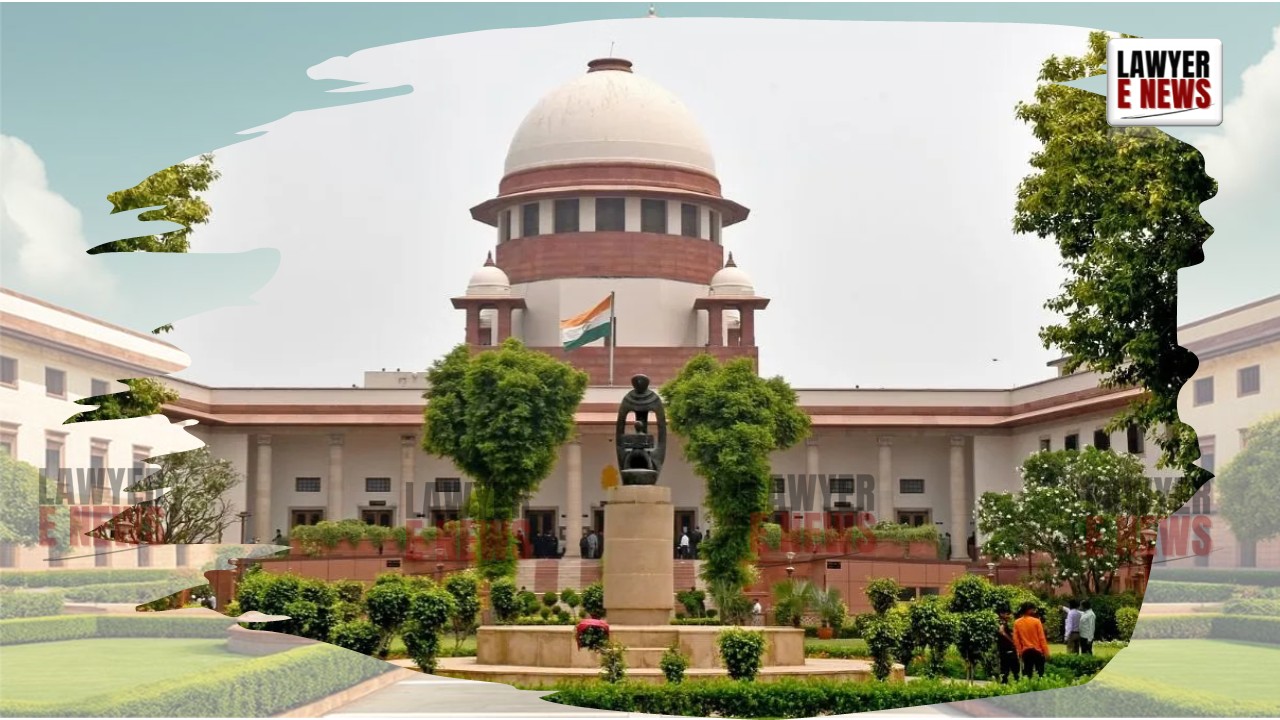-
by sayum
17 February 2026 8:32 AM



“Value of Consideration, Not Self-Assessed Damages, Determines Jurisdiction”:- In a Constitutionally significant ruling Supreme Court of India upheld the validity of Sections 34(1), 47(1)(a)(i), and 58(1)(a)(i) of the Consumer Protection Act, 2019, affirming that pecuniary jurisdiction must be based on the value of consideration paid, and not the amount of compensation claimed.
Rejecting the claim that the shift from the 1986 regime to the 2019 structure violates Article 14 of the Constitution, the Bench comprising Justice Pamidighantam Sri Narasimha and Justice Manoj Misra held emphatically: “There is no right or privilege of a consumer to raise an unlimited claim of compensation and thereby choose a forum of his choice for instituting a complaint.”
The Court concluded that the classification based on consideration paid for goods or services is “neither illegal nor discriminatory” and serves a rational purpose in streamlining the consumer dispute resolution process.
“Hierarchy of Judicial Remedies Cannot Be Based on Inflated Self-Assessed Claims”
The petitioner, a consumer whose husband died in a car fire incident, and another appellant whose insurance claim was rejected, approached the Supreme Court alleging that the 2019 Act arbitrarily denies access to higher fora like the National Consumer Disputes Redressal Commission (NCDRC) unless the actual consideration paid exceeds ₹10 crore.
Under the repealed 1986 Act, jurisdiction was determined by the total of “value of goods or services and compensation claimed.” Under the new law, it is pegged to the consideration actually paid, leading the petitioners to allege that it creates an anomalous situation.
Advocate Shreeyash Lalit argued: “Consumers who claim identical compensation, but have paid different considerations at the time of purchase, are treated unequally… the change arbitrarily limits access to justice.”
The Court rejected the plea as misconceived, finding no violation of Article 14, and observed: “Whichever be the mode, there must be a consideration. That is essential to be a consumer… Consideration is at the core of contractual relations and can validly determine the forum of dispute resolution.”
“Forum Shopping Through Inflated Compensation Has No Place in Law”
Addressing the policy rationale, the Court observed that inflated compensation claims under the 1986 Act were burdening the national commission, undermining the efficiency of the consumer protection framework.
Citing the legislative intent, the Court remarked: “The earlier standard… often resulted in a disproportionately larger amount of cases falling under the jurisdiction of the NCDRC. The legislative intent behind omitting ‘compensation’ is of streamlining pecuniary jurisdiction by ousting individual whims of a consumer.”
The Bench further added: “There is no loss of remedy. The only shift is in forum allocation. The relief or compensation a consumer can claim remains unrestricted.”
In support of the constitutional framework, the Court recalled State of West Bengal v. Anwar Ali Sarkar, stating: “The classification must be founded on an intelligible differentia… and must have a rational relation to the object sought to be achieved.”
“Performance Audit of Law Is Executive’s Duty – Not Every Structural Shift Is a Constitutional Defect”
While dismissing the constitutional challenge, the Court acknowledged the practical concerns raised by petitioners—especially regarding insurance cases, where premium is often low but the insured sum and damages claimed can be enormous.
Recognising the “institutional void” that the 2019 Act sought to fill, the Court emphasized that the Central Consumer Protection Council and the Central Consumer Protection Authority must take active responsibility for reviewing the working of the Act.
The judgment declared: “Reviewing and assessing the implementation of a statute is an integral part of Rule of Law… If institutions and bodies work effectively, it is but natural that the purpose of legislation will be achieved.”
Directing statutory bodies to act, the Court ordered: “The Council and Authority shall… take such measures as may be necessary for survey, review and advise the government… for effective and efficient redressal.”
It warned that mere dissatisfaction with policy consequences is not grounds for constitutional invalidation: “Not every change in procedure is unconstitutional… The power of judicial review must be exercised not to disrupt structures, but to ensure they function efficiently.”
“Statutory Scheme Serves Legitimate Ends — Constitutional Challenge Fails”
Summarising its conclusion, the Court declared: “We dismiss the constitutional challenge to sections 34, 47 and 58 of the 2019 Act and declare that the said provisions are constitutional and are neither violative of Article 14 nor manifestly arbitrary.”
It reinforced that the remedy for any systemic deficiencies lies not in striking down the law but in administrative vigilance and statutory audit.
Date of Decision: April 29, 2025
